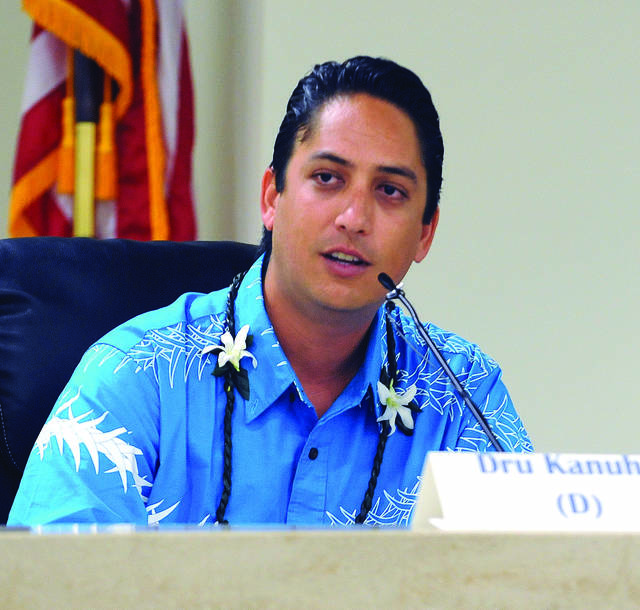Hawaii Island property owners could end up paying an extra $75 million annually if a constitutional amendment passes that would allow the state to carve off a piece of county property taxes for public education.
It’s not known which categories of properties would be taxed if the ballot amendment passes in the Nov. 6 general election.
Property classifications such as affordable housing and agriculture could fall under that category, in addition to the non-owner-occupied residential class, which already carries the highest property tax rate in the state. Preliminary indications are the state surcharge alone could increase that rate from $11.10 in tax for each $1,000 in property value to $18 per thousand.
That’s according to county Finance Department officials, who made a presentation Tuesday to the County Council Finance Committee. The $75 million increase in state taxes compares to the county’s current $524 million budget.
Counties are opposing the constitutional amendment, saying property taxes are the counties’ only dedicated revenue source. In Hawaii County, property taxes account for 76 percent of the general fund budget, said county Real Property Tax Administrator Lisa Miura.
“We struggled with the loss during the lava of $5 million (in property taxes),” Miura said. “I can’t imagine us raising $75 million.”
Hawaii has the only state-run school district, compared to other states, where schools are controlled locally and subsidized by property taxes. Hawaii’s Department of Education currently has a $2 billion budget, but students still lag behind national peers in test results, and the state is chronically short of teachers.
The Hawaii State Teachers Association has pushed for a dedicated funding source for years. HSTA President Corey Rosenlee downplayed concerns that the tax would be charged on anyone other than owners of pricey second and third homes.
“No one wants to tax mom and pop stores. No one wants to tax residents,” Rosenlee said in an interview last week. “They’re just saying that to make people afraid.”
But local officials feel they have a reason to be fearful. Not only could the county lose control over its primary revenue source, but it’s very likely its bond rating would suffer as well, Miura said. Losing control of its tax base could result in a lower bond rating and consequently, higher interest rates on county borrowing, she said.
“We can’t afford to open the door and let the state start taking county funds for state departments,” said Miura. “Once you open the door we can’t stop it.”
Kona Councilman Dru Kanuha, who’s running as a Democrat for state Senate, brought the issue up for council discussion. He said it’s a hot issue for the Hawaii State Association of Counties, and he wants to help make the public aware of the ramifications of voting for the new tax.
“We want to support our public education,” Kanuha said. “There’s issues with DOE that we don’t know where all the money’s going. … We want to see the money get directly to the classrooms but it’s not.”
Some people are calling for an audit of the department before more money is allocated, Kanuha said.
Miura agreed.
“We’re not contesting that the DOE may need more money but we’re going to explain that just throwing a blank check at them is not the answer,” she said. “The issue that we have is this does not equate with the teachers getting more pay and the kids going to get a better education in the classroom.”
Currently, the constitution states, “all functions, powers and duties relating to the taxation of real property shall be exercised exclusively by the counties.” If the ballot initiative passes, this wording will be appended, “provided that the legislature may establish, as provided by law, a surcharge on investment real property.”
The amendment further goes on to add, “Funding of public education shall be determined by the legislature; provided that revenues derived from a surcharge on investment real property pursuant to section 3 of article VIII shall be used to support public education.”
The constitutional change leaves it up to a future Legislature to set the amount of the surcharge, define what constitutes “investment real property” and detail what would qualify to “support public education.”









